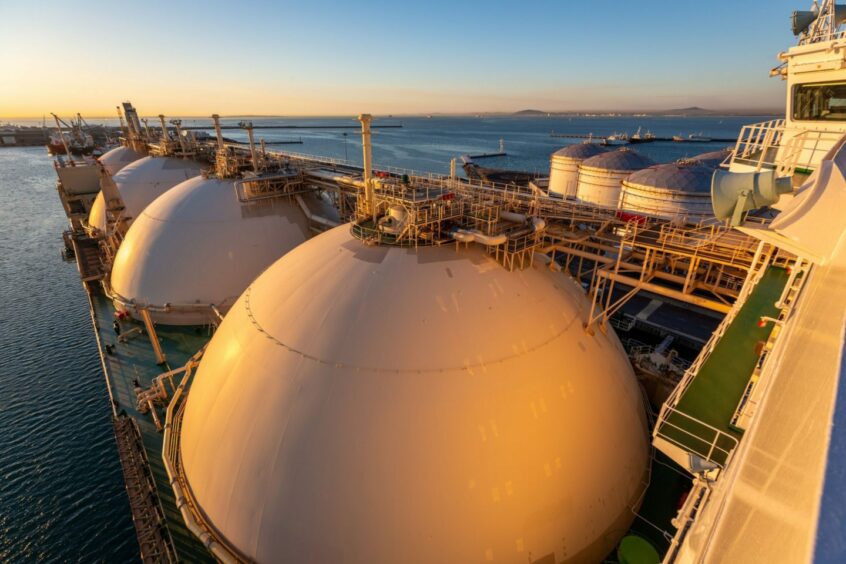
South Africa needs new power generation, but just how additional supply should be delivered is a matter of much – and increasingly heated – debate.
At the COP26 talks last year, an innovative agreement was reached between a group of rich countries and South Africa. The Just Energy Transition Partnership aimed to provide $8.5 billion of financing over the next five years to support decarbonisation plans in South Africa.
At the heart of the problem is South Africa’s reliance on coal, accounting for 77% of power generation. Could the country transition to renewable energy in one jump, or does it need gas to serve as an intermediate step?
The dispute, amid South Africa’s load shedding crisis, is becoming increasingly heated and led to allegations of dubious foreign interference.
Industry executives and government officials have expressed scepticism over the role of foreign-funded research in determining the country’s energy future. These overseas interests are also acting to derail new exploration plans, the allegations suggest, such as Shell’s Wild Coast seismic.
Misinformation
Minister of Mineral Resources and Energy Gwede Mantashe has helped fuel this fire.
In December, the minister slated objections to energy and mining developments. Opposition was “apartheid and colonialism of a special type, masqueraded as a great interest for environmental protection”. The defence of the environment was taken to an extent where it “oppressed” South Africa’s economic development, he continued.
He continued his theme in January. Speaking at a conference, the minister said an “anti-development movement” aimed to “kill investment through courts”. Foreign funds have paid for high-priced lawyers, Mantashe said, warning that restrictions on exploration would kill the extractive industries.
South Africa has experienced misinformation campaigns in the past. Infamously, during the Jacob Zuma presidency, the Gupta family paid Bell Pottinger to spread rumours to distract attention from various business deals.
Coal is a contentious issue in South Africa. Defending the industry is seen as entrenching the country’s energy security and protecting employment. In a country where unemployment is around 34%, any threat to existing jobs is taken seriously.
While Mantashe, and the Department of Mineral Resources and Energy (DMRE), has been supportive of the country’s existing coal assets – and new hydrocarbon developments – there are a range of opinions in the government.
Split opinions
Steve Nicholls, of the Presidential Climate Commission, speaking in July, highlighted the need for South Africa to cut emissions. International trade is changing and the country must keep its eye on how this will change demand for products, he said.
“More jobs will be created in the transition than in sticking with existing industries – we can achieve energy security,” he said.
It is clear that the chance of building any new coal plants seems slim. In the next 10 years, Eskom is due to shutter around 10 GW of its ageing coal fleet.
The government has high hopes for gas. Current domestic supplies are limited, although Sasol is a major importer from its Mozambique assets. To meet new demand, there must be domestic supply – but this too is facing opposition from a number of NGOs.
One NGO that has come in for particular criticism is the Children’s Investment Fund Foundation (CIFF). The group issued a call for researchers in 2021. This explicitly set out a desire to undermine support for gas in South Africa.
The aim was to “influence the elite debate around gas investments and the COVID recovery, and would then broaden to a more public focused campaign focused on vilifying gas” and pushing for renewables.
Mantashe singled out CIFF in an interview with City Press in January. The group, he said, was attempting to influence various local bodies in order to “destabilise the work” of the DMRE. CIFF did not respond to a request for comment.
Securing gas
The group is not alone in raising concerns around a move into gas. The International Institute for Sustainable Development (IISD) described a shift towards gas as a “very expensive mistake” while Meridian Economics said this would be “uneconomical even before carbon emissions are considered”.
Even industry body IGUA-SA has raised concerns about gas prices, albeit while backing the feedstock as a realistic solution to the country’s challenges. The DMRE has failed to make new plans to develop gas resources, IGUA-SA said, and the market will run short in 2024-25.
Even as the debate swirls, South Africa is planning to move ahead with approving TotalEnergies Luiperd development and importing LNG. The ability to import internationally may be an attractive longer term proposition, even though costs are currently sky high.
If South Africa wants to achieve its gas consumption plans, the most economical way would be to develop domestic resources.
